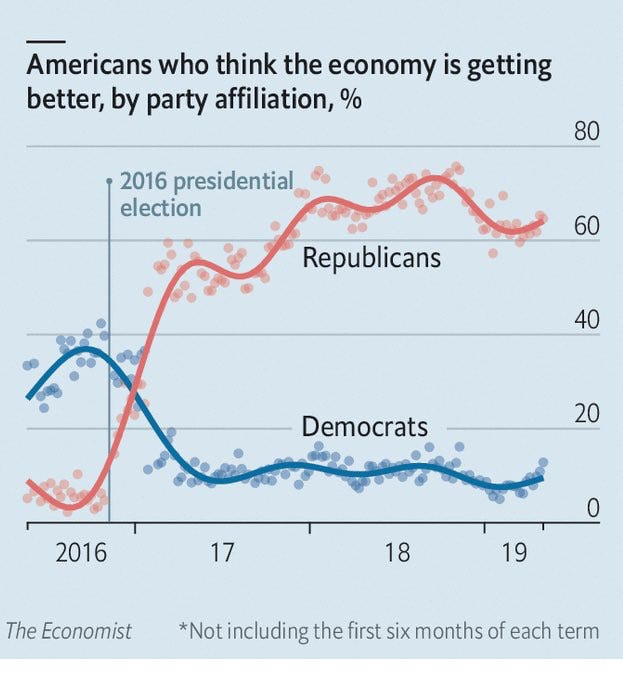Inflation and the Hyperreal Election
Daily lives means daily lives
I’ll write a longer piece later, but having had a bit of insomnia last night I’m not sure I’ll get to it today — so getting this thought down now.
When I look at this election I am struck how little real policy and real gains in people’s lives mattered to their perceptions. I know that this was an anti-incumbent cycle, but it’s still intensely weird that the party that oversaw the miraculous “soft landing”, full employment, record stock prices, a manufacturing renaissance, the re-empowering of unions, and increases in real wages was not the party that voters saw as having the “economy candidate”.
There’s numerous reasons for that, but the biggest is one of the only daily economic signals that citizens get are prices. People don’t even get a physical weekly paycheck anymore. Ask a person with direct deposit what their current take-home is, and they will not be able to answer accurately within 10%, never mind tell you what the shift was from last year.
People see gas prices and food prices every day. As Charlie Warzel has written, everything else is just a choose your own reality adventure. You can be told that jobs are up or jobs are down, that crime is up or crime is down, that the stock market is slowing, or manufacturing is declining. You can believe those things because you seldom see them directly.
The Harris campaign tried to educate Americans on how good the other pieces of the economy were. The real situation is that Americans truly are better off than they were four years ago, especially the working class. But prices are a direct reality, and all the things that would balance that story out are mediated realities. Whether my neighbors all have jobs is invisible to me most of the time, as is the stock market, as is crime, GDP, wages, and the rest. We’ve known this for a while. Distortion happens on both sides of the aisle.
And so the idea that you would — in this broken media environment — be able to put the unmediated experience in the context of a mediated one was maybe always doomed to fail. People can deny that greater economic context exists but you can’t deny that prices rose.
This gets to my point. People think that the phrase “connect policy with people’s daily lives” means “connect with the most important things in people’s lives”. I think that might be wrong. The most important things in people’s lives are often not daily. We saved millions of jobs in this country at the cost of increased prices. But for people who retain work in a recession job loss is not a daily experience and prices are.
It was, in many ways, The Hyperreal Election, where a thriving economy was seen by citizens as a collapsing one, a declining border crisis was seen as escalating. But in a world where anyone can make up any reality for you to live in, a world where Information is Experience, I wonder if it is not the most important things in your life that will be the unmovable issues, but the daily ones. And I wonder if that partially explains why this year — where elections across the world dealt with the twin elements of inflation and broken media environments — was one where all incumbents lost.


If, as you argue, food and gas prices are the primary metric, then that makes them potent weapons in the hands of GOP fanboy corporations. The major grocery chains can make Dems look bad and increase their profit margins with price gouging in one stroke. The fact that Trader Joes eggs, milk and bacon were all half the price of the major chains for the past few years made me suspicious. What convinced me is that a few days after the election, Safeway lowered prices on Eggs and Milk to below Trader Joes prices and announced it with a red white and blue label, "New Low Prices".